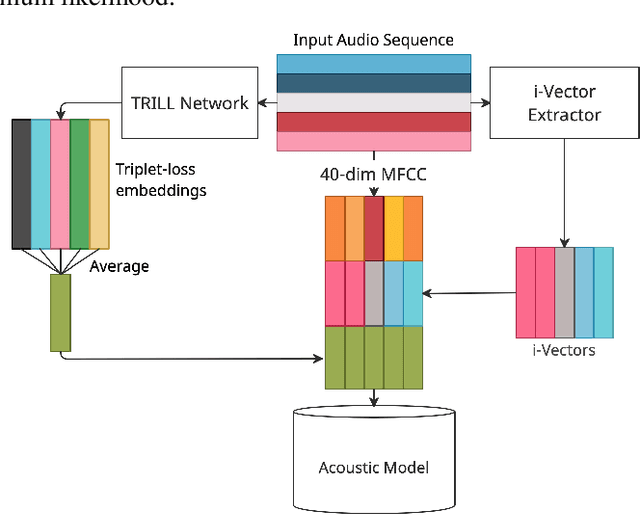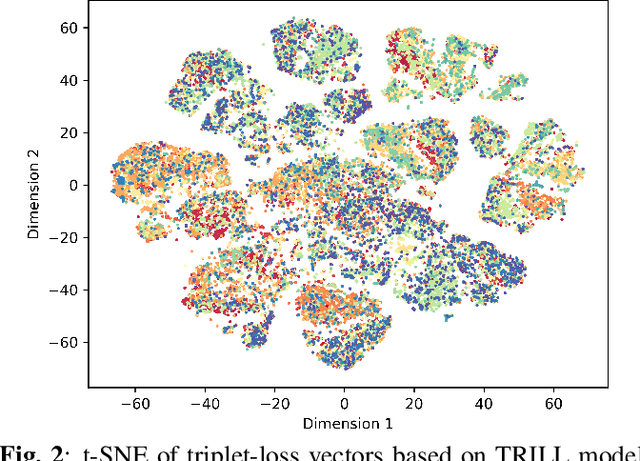Scenario Aware Speech Recognition: Advancements for Apollo Fearless Steps & CHiME-4 Corpora
Paper and Code
Sep 23, 2021



In this study, we propose to investigate triplet loss for the purpose of an alternative feature representation for ASR. We consider a general non-semantic speech representation, which is trained with a self-supervised criteria based on triplet loss called TRILL, for acoustic modeling to represent the acoustic characteristics of each audio. This strategy is then applied to the CHiME-4 corpus and CRSS-UTDallas Fearless Steps Corpus, with emphasis on the 100-hour challenge corpus which consists of 5 selected NASA Apollo-11 channels. An analysis of the extracted embeddings provides the foundation needed to characterize training utterances into distinct groups based on acoustic distinguishing properties. Moreover, we also demonstrate that triplet-loss based embedding performs better than i-Vector in acoustic modeling, confirming that the triplet loss is more effective than a speaker feature. With additional techniques such as pronunciation and silence probability modeling, plus multi-style training, we achieve a +5.42% and +3.18% relative WER improvement for the development and evaluation sets of the Fearless Steps Corpus. To explore generalization, we further test the same technique on the 1 channel track of CHiME-4 and observe a +11.90% relative WER improvement for real test data.
 Add to Chrome
Add to Chrome Add to Firefox
Add to Firefox Add to Edge
Add to Edge